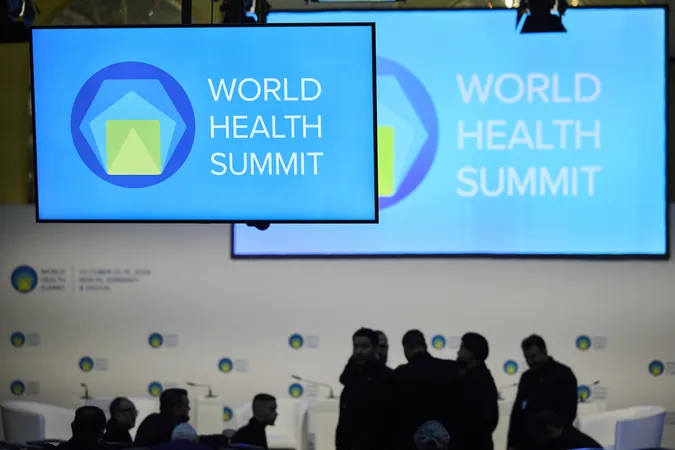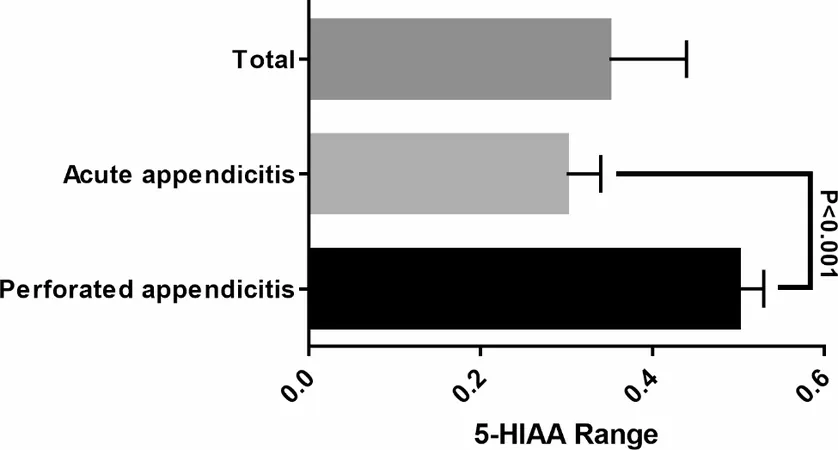
A Bold Vision for Health: Can the World Halve Premature Deaths by 2050?
2024-10-15
Author: Jacob
According to a groundbreaking report from The Lancet, there is a hopeful path forward: all countries, regardless of their economic standings, could reduce premature death rates by a staggering 50% by the year 2050. This ambitious goal could save millions of lives worldwide, but achieving it depends on targeted interventions against fifteen critical health threats that claim lives each year.
The Leading Causes of Premature Death
Topping the list of these health threats is tobacco use, identified as the leading preventable cause of death globally. The report highlights that more than half of these threats are linked to maternal, newborn, child, and infectious diseases, suggesting that focusing on these specific areas can lead to significant reductions in mortality rates before the age of 70.
Professor Angela Chang from the University of Southern Denmark, who spearheaded the report, stated, "By reinforcing previous investments in health, prioritizing a limited number of conditions, increasing funding, and fostering innovation, we can combat these challenges effectively."
A Focus on the 15 Priority Conditions
These 15 priority conditions were meticulously selected from a pool of over 17,000 recognized health diagnoses and represent a whopping 80% of the life expectancy gap between various regions and the North Atlantic nations (encompassing North America and Europe). Alarmingly, a 22-year gap in life expectancy exists between Sub-Saharan Africa and these Northern regions, with around 80% of that disparity linked to the 15 conditions, primarily driven by infectious and maternal health issues.
If this global ambition succeeds, the average premature mortality rate worldwide could plummet to about 15%, aligning with the standards currently observed in Europe and North America. This would mean remarkable advancements for countless individuals, especially in low and middle-income countries, where premature mortality stands at 52% in regions like Sub-Saharan Africa.
Historical Optimism and Financial Strategies
The report's optimism is backed by historical trends as the probability of dying before the age of 70 has halved since the 1960s. Among 37 nations—including large populations like Bangladesh, China, and Japan—many have already achieved similar reductions in a shorter timeframe than the 26 years remaining until the 2050 deadline.
To build on this progress, the Lancet Commission advocates for public financing aimed at essential medicines targeting the aforementioned 15 conditions. Additionally, it suggests leveraging international funding strategies, akin to successful models employed by GAVI, PEPFAR, and the Global Fund, to alleviate costs burdens faced by patients and governments.
Urgent Action Required on Tobacco Control
The report makes a compelling case for high tobacco taxes as the most effective policy tool in mitigating premature deaths. Chang emphasized, "While other risk factors are often highlighted, tobacco remains the most pressing concern." Research indicates that a 50% rise in excise taxes on tobacco, alcohol, and sugary drinks could yield an astounding $2.1 trillion for low and middle-income countries over five years, enabling a significant 40% increase in healthcare financing if earmarked for health initiatives.
The report casts a spotlight on the Middle East and North Africa, a region grappling with a rising health crisis due to rampant tobacco use. For instance, in Egypt, smoking rates have doubled from 2000 to 2018, illustrating urgent need for enhanced tobacco taxation—and regional tobacco taxes remain shockingly low compared to WHO recommendations.
A Foreboding Future: Pandemic Preparedness is Key
New projections from the commission present a concerning outlook: there is a 23% probability of experiencing another pandemic comparable to COVID-19 within the next decade. The unpreparedness of health systems for such an event could jeopardize the strides made in reducing premature deaths. Helen Clark, former Prime Minister of New Zealand, urged attendees at the World Health Summit to take these warnings seriously.
The report calls for a reevaluation of health budgets as global tensions from conflict, climate change, and debt burden health systems. There is an urgent need to learn from past health crises and develop strategies to avoid being caught off-guard again.
The Legacy of Health Investment: A Historical Perspective
The findings of the Lancet Commission echoes a pivotal 1993 World Bank report that revolutionized the approach towards global health finance by framing health not merely as a cost, but rather as an essential investment. The current report amplifies this message, asserting that prioritizing health investment remains crucial for maximizing individual and societal wellbeing.
Dr. Gavin Yamey, a major contributor to this commission, reinforced this ethos, stating, “Today, the evidence is stronger than ever to support reducing premature mortality. This target isn't just achievable; it is a prize within our grasp that can lead to extraordinary benefits in health, welfare, and economic stability.”
As we stand on the brink of this pivotal period, the stark reality remains: if governments, NGOs, and health advocates align their efforts, the world may well celebrate a future where fewer lives are lost prematurely, fostering healthier generations to come.









 Brasil (PT)
Brasil (PT)
 Canada (EN)
Canada (EN)
 Chile (ES)
Chile (ES)
 España (ES)
España (ES)
 France (FR)
France (FR)
 Hong Kong (EN)
Hong Kong (EN)
 Italia (IT)
Italia (IT)
 日本 (JA)
日本 (JA)
 Magyarország (HU)
Magyarország (HU)
 Norge (NO)
Norge (NO)
 Polska (PL)
Polska (PL)
 Schweiz (DE)
Schweiz (DE)
 Singapore (EN)
Singapore (EN)
 Sverige (SV)
Sverige (SV)
 Suomi (FI)
Suomi (FI)
 Türkiye (TR)
Türkiye (TR)